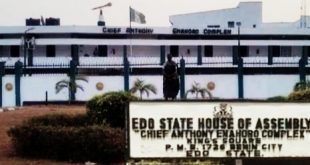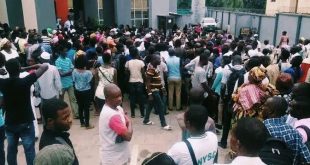PRISONERS’ Rehabilitation and Welfare Action, PRAWA, has called on governments to review its criminal laws to stop jailing people for petty offences.
The group made this call in Enugu following a baseline survey it conducted in the four pilot states; Abia, Lagos Enugu, Kano and FCT, saying that there are cost implications on government, community and the individual.
Presenting the baseline report on Criminalisation and Classification of Petty Offences found in Enugu state and published with the support of Open Society Initiative of West Africa, OSIWA, Executive Director of PRAWA, Dr Uju Agomoh, lamented that most of the people being arrested for petty offences were people who have no shelter and are unemployed, adding that Enugu state Waste Management Agency is responsible for 48% percent of the arrests.
While disclosing the principles of African Charter on decriminalization and declassification of petty offences, she pointed out that it was morally wrong for government to criminalise economic activities that poor people engage in as a means of earning their daily bread and jail them as a result.
Dr Agomoh, who commended Enugu State government for being ahead of other States on the review of criminal laws, urged to adopt the principles on decriminalization and declassification of petty offences as been set up by African commissions on human and people in the future review of criminal laws.
She disclosed that the group engaged in the campaign to decriminalised and declassify petty offences as well as seek alternative punishment to imprisonment, such as non-custodial sentences.
“It’s very sad to see somebody who is detained for something that is not worth detaining. When the person is in the prison, there is cost implications to it and federal government have to pay for it. Beyond this, there is also cost implications to the individual. If the person is the family bread winner, you have taken the person away from the source of income and all those who are dependent on the person and also deprived the community and government what ever the person might have contributed economically.
“Security reasons could not be a justification to arrest and imprison such people; like hawkers, prostitutes, and other petty offenders as it would seem that the states were further oppressing the poor people rather than empowering them economically.
“We were happy to hear about the review of criminal laws in Enugu state. It will be good that those principles on decriminalization and declassification of petty offences as set up by African commission on human and people should be actually adopted in the reform process”, Agomoh disclosed.
In his remark, the Controller of Prisons, CP, Enugu command, Ndubisi Ogbodo, disclosed that a bill to reform the Prison system is awaiting President Muhammadu Buhari’s assent.
Ogbodo who disclosed that PRAWA programmes is in line with Nigerian prisons, said the bill when passed would change the name, “Nigerian Prisons Services to Nigerian Correctional Services” as being done around the world now, and would also have provisions for custodial and non-custodial sentences as part of efforts to decongest the prisons.
CP, Ogbodo, who disclosed that Enugu prisons services is building a booster institute at Ngwo, stated that it would contribute immensely in rehabilitation process initiated by federal government of Nigeria which aligned with the principles of African Charter and PRAWA for improvements of prisons unlike what obtained in the past.
“The initiative of PRAWA is something that prisons services have been working for. That is why very soon, there will be a name change from Nigerian Prisons services to Nigerian correctional services. Emphases is now on reformation, rehabilitation and reintegration so that we will be able to catch them and not to lose them.
“Prisons is coming up stronger now to make sure that we reform our youths who as a result of one offence or the other will become an inmate. Very soon the booster institute at Ngwo will take off and when that is done, our younger offenders below 16 years will be taken there for training because the emphasis now is reforming man. No body is born criminal, it’s either the failure of the society, family, community or government that result into criminality.
“We would have Community Sentencing and parole system. Some people would be used on farm settlements and to clean the streets. A lot of work is on-going. Everyone, who comes to prison now must have something to do at the prison,” he said.
The agencies that graced the seminars includes; Nigerian police, custom service, Enugu state justice reform team, ministry of transport, Nigerian persons, media, Civil society, Enugu state legal team, Chief magistrate of Enugu state court and many others.
It was also gathered that all the agencies that formed the stakeholders, more especially the security agencies would undergo training concerning the decriminalization and declassification of petty offences.
 South Daily
South Daily





